Gullah Geechee: Descendants of slaves fight for their land
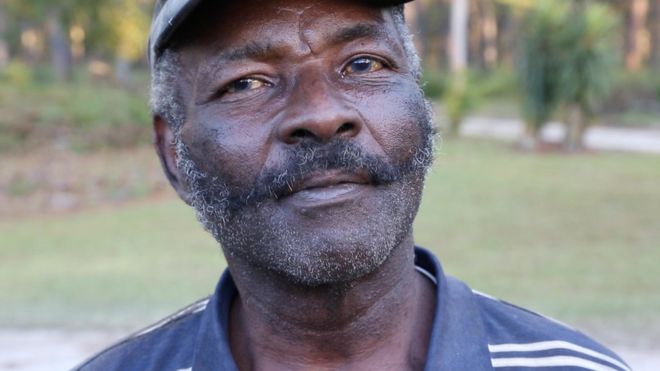
Descendants of West African slaves in South Carolina are fighting to prevent their land from being confiscated and auctioned. Can they save a traditional way of life that has survived for the one and half centuries since emancipation?
The first Lillian Milton knew about it was when she arrived at the local council offices to settle her tax bill.
She was told her home had been sold because she had not paid a $250 levy for a sewer service. She was shocked - at that point she had not even been connected to the sewer system.
"They had sold everything, the property, the house and all and when I offered to pay them with a cheque, they told me I couldn't. I had to get cash money - 880 some dollars that I had to pay them to get my place back.
"It's like they were saying if I didn't get on the system I wouldn't have no place to stay."
Milton suspects the heart attack she suffered in January was brought on by the stress of trying to get her home back.
In the end, she says, "my boss lady gave me the money," and she was able to pay the court fees to redeem her property.
Many of her friends and neighbours in Jackson Village, one of three black communities in Plantersville, South Carolina, face losing their homes in a similar way if they don't pay the tax for a sewer they say they didn't want and don't need.
Last week 20 homes were put up for auction.
Most residents are the direct descendants of West African slaves, who bought land on the former rice plantation, or were deeded it by the government, after emancipation in 1865.
Property ownership had special meaning for these former slaves, known as Gullah Geechee, and the land has been proudly passed down through the generations, as a safe haven to raise families and farm.
But America's seemingly insatiable appetite for coastal living and the money that can be made from buying up cheap former plantation land is a potential threat.
"The only people we see are the developers," says the Rev Ben Grate, gazing at the empty road that snakes through Jackson Village.
"We call them 'strangers' and we are afraid of them. Because they come to take your land.
"They are millionaires, in big cars, driving slow, staking out property, dreaming on what it would be like to have a motel on the river right here."
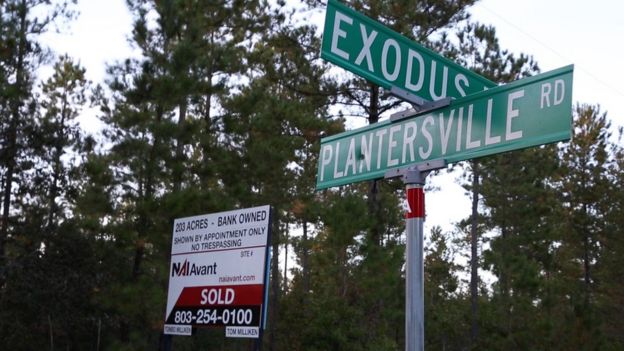
With its neat brick-built bungalows, set back from the road in their own plots of land, and protected from the roar of Highway 701 by a dense forest, Jackson Village feels secure and cushioned against change.
But few residents here have deeds to their homes. The freed slaves who originally bought the land were mistrustful of the legal system, or excluded from it, and did not leave written wills.
The land is held in common. The families are entitled to live on it under "heir's property rights" - but so are all of the descendants of the original owners. Ben Grate estimates that more than a million people, spread out across America, have a share of land in Plantersville, whether they know it or not.

Descendants of West African slaves in South Carolina are fighting to prevent their land from being confiscated and auctioned. Can they save a traditional way of life that has survived for the one and half centuries since emancipation?
The first Lillian Milton knew about it was when she arrived at the local council offices to settle her tax bill.
She was told her home had been sold because she had not paid a $250 levy for a sewer service. She was shocked - at that point she had not even been connected to the sewer system.
"They had sold everything, the property, the house and all and when I offered to pay them with a cheque, they told me I couldn't. I had to get cash money - 880 some dollars that I had to pay them to get my place back.
"It's like they were saying if I didn't get on the system I wouldn't have no place to stay."
Milton suspects the heart attack she suffered in January was brought on by the stress of trying to get her home back.
In the end, she says, "my boss lady gave me the money," and she was able to pay the court fees to redeem her property.
Many of her friends and neighbours in Jackson Village, one of three black communities in Plantersville, South Carolina, face losing their homes in a similar way if they don't pay the tax for a sewer they say they didn't want and don't need.
Last week 20 homes were put up for auction.
Most residents are the direct descendants of West African slaves, who bought land on the former rice plantation, or were deeded it by the government, after emancipation in 1865.
Property ownership had special meaning for these former slaves, known as Gullah Geechee, and the land has been proudly passed down through the generations, as a safe haven to raise families and farm.
But America's seemingly insatiable appetite for coastal living and the money that can be made from buying up cheap former plantation land is a potential threat.
"The only people we see are the developers," says the Rev Ben Grate, gazing at the empty road that snakes through Jackson Village.
"We call them 'strangers' and we are afraid of them. Because they come to take your land.
"They are millionaires, in big cars, driving slow, staking out property, dreaming on what it would be like to have a motel on the river right here."

With its neat brick-built bungalows, set back from the road in their own plots of land, and protected from the roar of Highway 701 by a dense forest, Jackson Village feels secure and cushioned against change.
But few residents here have deeds to their homes. The freed slaves who originally bought the land were mistrustful of the legal system, or excluded from it, and did not leave written wills.
The land is held in common. The families are entitled to live on it under "heir's property rights" - but so are all of the descendants of the original owners. Ben Grate estimates that more than a million people, spread out across America, have a share of land in Plantersville, whether they know it or not.
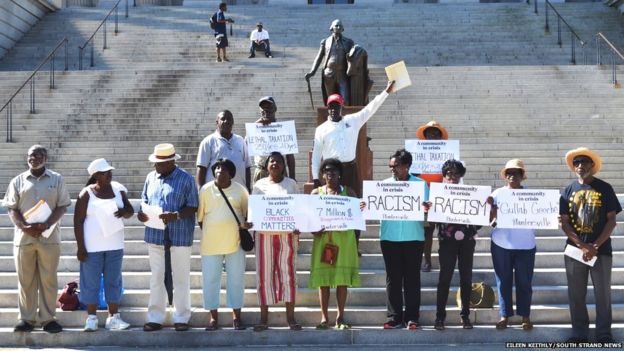
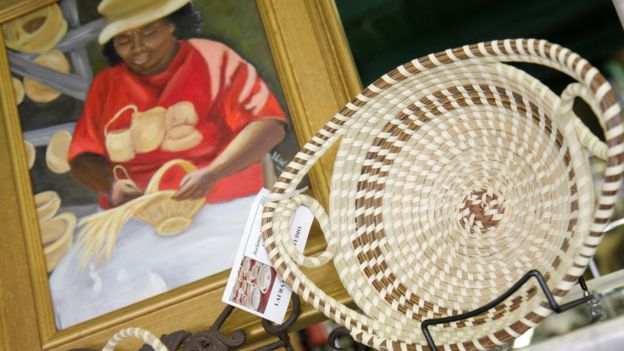
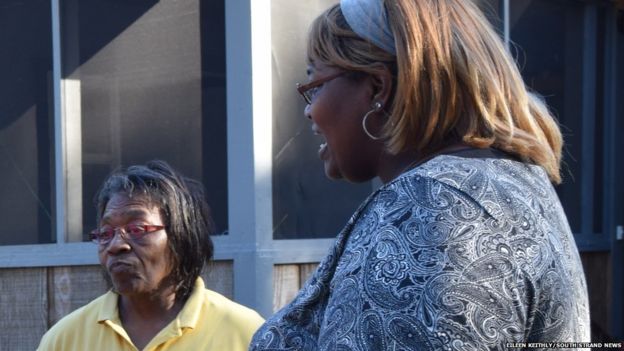
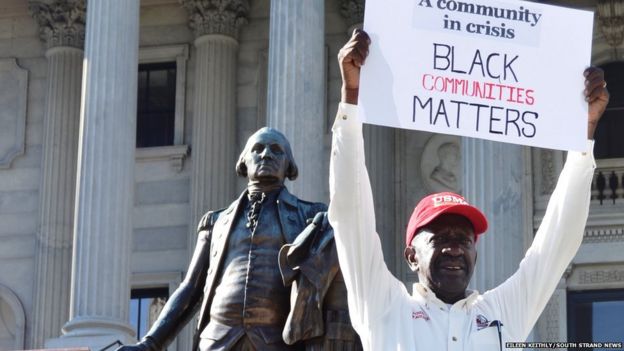
 not in that area tho, cacs aint been givin him no problems but it's only a matter of time knowing how they move
not in that area tho, cacs aint been givin him no problems but it's only a matter of time knowing how they move